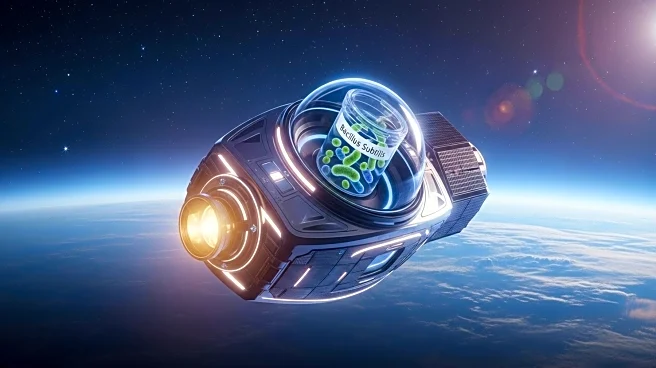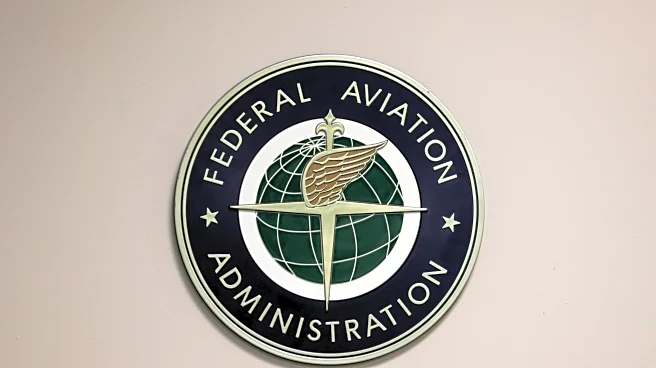What's Happening?
ResearchSat has successfully conducted a suborbital space flight experiment involving Bacillus subtilis onboard the Suborbital Express 3 - M15 mission. The experiment was part of the ADI-α payload, which included various scientific experiments such as a yeast cell culture and drug microencapsulation. The payload was integrated onto a sounding rocket powered by a VSB-30 engine, launched by the Swedish Space Corporation. The flight reached a maximum altitude of 257 km, providing a microgravity environment for the experiments. The payload was designed to autonomously run scientific experiments using microfluidic chips and sensors. The Bacillus subtilis spores were prepared and freeze-dried before being placed in microtubes within the payload. The experiment aimed to study the effects of extreme acceleration, microgravity, and deceleration on the spores. Post-flight, the spores were analyzed using scanning electron microscopy to assess their viability and dimensions.
Why It's Important?
This experiment is significant as it contributes to the understanding of how microorganisms respond to space conditions, which is crucial for future space missions and potential long-term space habitation. The findings could have implications for biotechnology and pharmaceutical industries, particularly in developing new methods for drug delivery and preservation. The successful execution of such experiments in microgravity can lead to advancements in scientific research and innovation, potentially benefiting various sectors including healthcare and environmental science. Additionally, the collaboration between ResearchSat and international partners highlights the growing interest and investment in space exploration and research.
What's Next?
Following the successful completion of the suborbital flight, further analysis of the Bacillus subtilis spores will be conducted to understand the long-term effects of space travel on microbial life. The results could inform future experiments and missions, potentially leading to more complex biological studies in space. ResearchSat may continue to collaborate with international space agencies and research institutions to expand the scope of their experiments. The insights gained from this mission could also pave the way for new technologies in space exploration, such as improved life support systems and sustainable living conditions for astronauts.
Beyond the Headlines
The experiment raises ethical and scientific questions about the manipulation of biological organisms in space. Understanding the resilience and adaptability of microorganisms in extreme environments could lead to breakthroughs in synthetic biology and genetic engineering. However, it also necessitates discussions on biosecurity and the potential risks of introducing Earth-based organisms to extraterrestrial environments. The long-term implications of such research could influence policies on space exploration and the preservation of planetary ecosystems.










